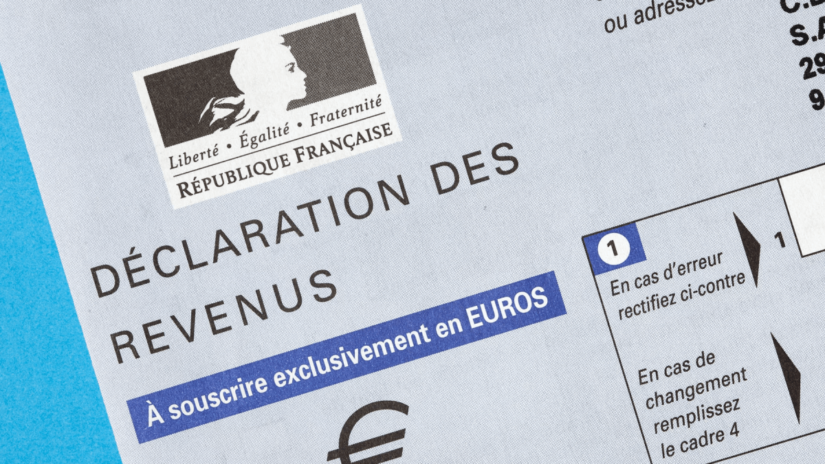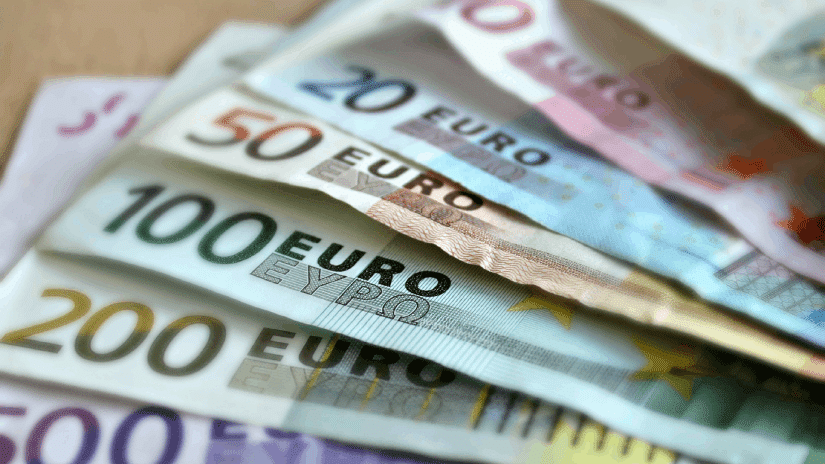Corporate Taxes in France – that will be the topic of today’s article.
I am going to shed some light on the corporate taxation situation in France.
This article is primarily going to be targeted toward the taxes that are applicable to corporate entities in France.
If you have any questions or want to invest as an expat or high-net-worth individual, you can email me (advice@adamfayed.com) or use these contact options.
This article isn’t formal tax or legal advice, and the facts might have changed since we wrote it.
Table of Contents
Tax Residence (Corporate)
France is made up of metropolitan France, which includes:
— Corsica
— the continental shelf
— French Guyana
— Guadeloupe
— Martinique
— Reunion
— Mayotte
A resident company in France is a company that is incorporated under French commercial laws.
On the other hand, a permanent establishment (PE) refers to a business operated in France that can be identified in one of three ways.
They are:
• Through a fixed business installation
• Through business conducted by a dependent agent
• Through the existence of a complete commercial cycle in France
A ruling can be requested from the authorities to determine if a foreign corporation’s presence in France qualifies as a PE.
Recently, the French Administrative Supreme Court ruled against an Irish subsidiary of a US group.
Irish Co. got engaged in digital marketing in Europe like marketing affiliation, media, and technology services.
The court determined that the French sister company, French Co., was a dependent agent for Irish Co. in France.
This happened even though it did not formally sign contracts on behalf of Irish Co.
The court concluded that Irish Co. had a permanent establishment in France for:
— Corporate income tax (CIT)
— Value-added tax (VAT)
Corporate Income Tax

Resident companies in France are required to pay Corporate Income Tax (CIT) on their French income sources.
Nonetheless, income related to foreign business activity or a foreign Permanent Establishment (PE) may be excluded.
This can be excluded according to the French tax basis only when there is no tax treaty between France and the foreign country.
Non-resident companies are subject to CIT if:
— Income generated from French business activity.
— Income was generated from a French PE.
— Income was generated from real estate located in France.
In France, different CIT rates are applied based on turnover and profits.
For financial years starting from January 1, 2020, the CIT rate is 28% for turnovers less than 250 million euros.
This includes 0 to 500,000 euros in profits and 31% for profits exceeding 500,000 euros.
For financial years starting from January 1, 2021, the CIT rates are 26.5% for turnover less than 250 million euros.
It was 27.5% for profits exceeding 250 million euros.
From January 1, 2022, the CIT rates further decrease to 25% for turnovers less than 250 million euros.
It is 31% for profits exceeding 500,000 euros.
Small corporations may benefit from a reduced CIT rate of 15% for their first 38,120 euros of taxable profits.
This has been extended to corporations with a turnover of up to 10 million euros. It is beneficial in comparison to 7.63 million euros for previous financial years.
Social Contribution Tax
Corporations are required to pay a social contribution tax, which is calculated at a rate of 0.16%.
This is calculated on revenue excluding the VAT.
However, a relief of EUR 19 million is deducted before the tax is assessed.
Patent Box Regime
Under specific criteria, the following are eligible for a reduced CIT rate:
— Income generated from the sale or licensing of patents.
— Patentable inventions
— Certain software
Capital Gains
In France, certain capital gains may be subject to a lower tax rate.

Local Income Taxes
No regional/local income taxes are imposed on corporate income in France.
Value-Added Tax (VAT)
VAT applies to the sale of goods and provision of services in France with a standard rate of 20%.
Certain items like medicines and passenger transportation are subject to a reduced rate of 10%.
A reduced rate of 5.5% is applicable for the following:
— Food products
— Gas and electricity subscriptions (under specific circumstances)
— Books
— Products/services for disabled individuals
Specific items and services, such as reimbursable drugs and press publications, are taxed at a rate of 2.1%.
In general, goods supplied outside France and certain services provided to foreign clients are exempt from VAT.
For business-to-business (B2B) services, taxation is based on the customer’s location.
On the other hand, business-to-consumer (B2C) services are taxed based on the supplier’s location.
VAT applies to taxable persons, partly taxable persons, and non-taxable legal persons registered for turnover taxes.
Custom Duties
Imported goods may be subject to customs duties, depending on their country of origin.
These regulations, in general, are aligned with the EU customs rules.
In some cases, payment of duties can be deferred based on warehousing arrangements.
Excise Taxes
Certain goods like alcohol, tobacco products, and oil and gas items are subject to excise duties.
Environmental Taxes

France implements environmental taxes based on the principle known as Polluter Pays.
Three-quarters of these taxes are primarily levied on energy consumption, particularly fossil fuels.
Other specific taxes target transportation (excluding fuel) and aim to encourage responsible waste management by producers.
Real Estate Tax
All the properties in France are levied with a 3% real estate tax.
The tax is calculated annually based on the fair market value of the property, proportionate to the ownership interest.
Joint liability for tax payment applies to all entities in the ownership chain.
Automatic exemptions exist for entities meeting specific criteria.
At the same time, conditional exemptions may be claimed by providing information to the French tax authorities.
Territorial Economic Contribution

The territorial economic contribution (CET) comprises two taxes namely:
— The companies’ land contribution (CFE)
— The companies’ added value contribution (CVAE)
CFE is in accordance with the rental value of real estate assets subject to the real estate tax.
CVAE is determined based on a company’s added value. The tax rates for these taxes and the reliefs vary based on turnover and added value thresholds.
Registration Duties
Various registration duties are applicable to different types of transactions.
Transfer of goodwill, shares, interests in legal entities, and real estate respectively attract different registration duties.
Exit Tax Rules
When you are transferring assets outside France as part of a head office/establishment transfer, unrealized gains are taxable.
Anyhow, transfers to EU or EEA member states may allow taxpayers to pay the tax immediately. Alternatively, this can be paid in equal installments over a period of five years.
Payroll Tax
Payroll tax is applicable to companies not liable for VAT on at least 90% of their annual turnover.
The standard rate for payroll tax is 4.25%, with increased rates for higher gross wages.

French Social Security Contributions
The French social security system consists of various schemes providing different benefits.
Contributions are shared between employers and employees, for which the tax paid is as follows:
— The employer’s share represents approximately 45% of the gross salary.
— The employee’s share ranges from 20% to 23% of the remuneration, depending on ceilings and gross salary levels.
Financial Transaction Tax (FTT)
FTT applies to the acquisition of equity securities issued by certain French-listed companies.
This is usually regardless of the transaction’s location.
The tax is paid by the investment service provider or custodian and is based on the acquisition price.
The current FTT rate is 0.3%.
Digital Services Tax
As of January 1, 2019, a 3% digital tax is imposed on companies that provide certain digital services in France.
This tax applies to companies with:
— Global annual revenue exceeding EUR 750 million
— Annual revenue in France exceeding EUR 25 million.
The tax specifically targets services such as providing digital platforms that enable users to interact with each other.
This could also apply to the services that facilitate targeted advertising based on user data collected through digital interfaces.
The digital services tax aims to ensure that digital companies make a fair contribution to the tax system.
Especially, in the countries where they operate, considering the challenges posed by the digital economy.
This digital involvement may affect a company’s ability to generate significant profits without a physical presence in a particular jurisdiction.
By levying this tax, France seeks to address the imbalance in taxes between brick-and-mortar businesses and online companies.
The implementation of digital services taxes has been a topic of debate and discussion at an international level.
Efforts are underway to establish a global framework for taxing digital services.
This is to avoid unilateral measures and ensure a consistent approach across jurisdictions.
International discussions and negotiations through organizations are trying to find a solution for taxation on digital services.
This includes organizations such as the Organization for Economic Cooperation and Development (OECD).
Therefore, the digital services tax is currently in effect in France.
However, there may be ongoing developments and potential changes in the future.
This is because of the international discussions progress and global agreements regarding the taxation of digital services.

Branch Income
The tax rates applicable to branch profits are usually similar to those applied to corporate profits.
It is generally assumed that the profits generated by the branch are distributed to the head office.
Non-resident, non-EU corporations operating branches in France are subject to a withholding tax (WHT) of 25%.
However, if there is a tax treaty in place, a reduced rate of WHT, such as 5%, may be applicable.
It is possible to request a partial or full refund of the WHT if the taxable amount exceeds the dividends.
This refers to the dividends distributed:
— By the foreign corporation within 12 months following the end of the relevant financial year.
— If the dividends are distributed to residents of France.
Branch WHT is not applicable to the profits if head offices are located in Europe or the EEA.
However, there are some conditions to be met for this to happen such as:
— Having a head office in Europe
— Being subject to corporate taxes as a non-resident
Inventory Valuation
The valuation of inventories must be based on the lowest values of their cost or market value.
The cost should be determined using either the first in first out (FIFO) method or the average-cost method.
The use of the last in first out (LIFO) method is not allowed.
Capital Gains

In general, capital gains are treated as ordinary income and are subject to corporate income tax (CIT).
This refers to the standard CIT rate, regardless of the duration of asset ownership.
Under specific conditions, a reduced rate of 10% applies to:
— Capital gains from the sale of patents
— Industrial processes related to patents
— Software
— Income from licensing the above-mentioned assets
Capital losses (short-term and long-term) can be deducted from taxable income, which includes:
— Disposal of patents
— Industrial processes related to patents
— Software
Significant relief is granted for gains from the sale of shares in subsidiaries held for at least two years.
88% of such capital gains are excluded from CIT, with the remaining 12% portion taxed at the standard rate.
The French administrative court has ruled that the 12% portion can be offset by tax credits.
This is under double tax treaties when selling shares of foreign subsidiaries.
However, long-term capital losses cannot be offset against future long-term capital gains.
The long-term capital gain regime applies to capital gains from the sale of shares eligible for the parent-subsidiary regime.
This is only if the seller holds at least 5% of the voting rights in the entity whose shares are being sold.
The long-term capital gain regime also applies to capital gains from the sale of shares in an entity.
Such an entity should be located in a non-cooperative state or territory (NCST).
If the entity can demonstrate genuine activities and is not engaged in profit shifting to the NCST.
Capital gains and losses on shares sold to a related company when:
— Capital gains from the sale of shares held in subsidiaries for less than two years are immediately subject to the standard CIT rate.
Capital losses from such sales are not deductible immediately.
Nevertheless, the loss can be deducted within two years from the acquisition date:
— The vendor is no longer subject to CIT
— The shares are held by an unrelated company after a restructuring of the buyer
— The shares are no longer held by the related company (such as through another sale)
If none of these events occur within two years, the capital loss is treated under the long-term regime and becomes non-deductible. Unless it was immediately deducted.
Non-resident capital gains:
As a general rule, non-resident companies are not subject to French taxation on capital gains.
This is also applicable to the sale of French assets unless they have a permanent establishment (PE) in France.
There are two exceptions:
— Capital gains from the sale of real estate assets in France
— Capital gains from the sale of shares in non-listed French corporations
Capital gains from the sale of shares in a French company subject to CIT.
This is when the seller has owned at least 25% of the rights in the profits of the French company.
That can be at any point in the five years preceding the sale unless a tax treaty provides otherwise.
Capital gains from the sale of shares held for more than two years may be eligible for a special exemption regime.
This will be according to ongoing cases before the French administrative courts.
All capital gains from the sale of French assets are subject to CIT at a specific WHT rate of 75% when:
— The capital gains from the sale of shares in a French company when the seller has owned at least 25%. This can be at any point within five years preceding the sale.
This can be avoided if the entity can prove genuine activities and no profit shifting to the NCST.
Dividend Income
Usually, dividends come under ordinary income while being taxed at a standard CIT rate.
Interest Income
Interest income also comes under ordinary income and is taxed as per the standard CIT rate.
Royalty Income
A reduced tax rate of 10% is applicable under restrictive conditions to capital gains on proceeds from:
— Licensing (or sub-licensing) of patents
— Licensing of industrial processes linked to patents
— Licensing of software held for at least two years
— Sale of patents
— Sale of industrial processes linked to patents
— Sale of software held for at least two years
All of the above-mentioned aspects are subject to certain conditions so as to become eligible for the reduced tax rate.
As I said previously, the income subject to this patent box regime is a net income.
This refers to the gross minus related R&D expenses after the application of a nexus ratio.
Apart from that scenario, royalty income is subject to CIT as per the standard rate. This could include an additional social contribution if applicable.
Foreign Income
Resident corporations are not subject to tax in France on foreign-source income.
This means the income generated through activities conducted abroad via foreign branches and foreign PEs.
Additionally, other foreign income remains non-taxable until it is repatriated to French-resident corporations.
Consequently, undistributed income of foreign subsidiaries is not subject to taxation.
However, there is an exception to the territoriality principle outlined in Article 209 B of the French Tax Code.
This Article is commonly referred to as the Controlled Foreign Company (CFC) rules.
Deductions
Now, let us have a look at the corporate deductions in France, which are helpful in reducing taxes.
— Depreciation
— Goodwill
— Start-up Expenses
— Research and Development (R&D) and Software Expenses
— Interest expenses
— Limitation of deductible financial expenses
— Adjusted taxable income
— Carry forward and carryover of non-deductible expenses
— Thin capitalization
— Hybrid mismatches
— Treatment of bad debt
— Charitable donations
— Fines and penalties
— Unrecoverable turnover taxes
— Registration duties
— CET (Contribution Economique Territoriale)
— Carryforward and carryback of CIT losses
— Tax groups
— Payments to foreign parties
Bottom Line
There have been significant developments made by the French tax authorities regarding corporate taxes.
These include:
— Gradual reduction of the corporate income tax (CIT) rate.
— Decrease in production taxes in France.
— Introduction of a new tax system for reinsurance captive companies.
— Deferral of taxes applicable to the revaluation of free assets.
— Favorable tax treatment for sale and leaseback transactions.
— Adjustments to the research and development (R&D) tax credit.
— Implementation of measures from the European Union (EU) Anti-Tax Avoidance Directive (ATAD) II to address hybrid mismatches.
— Introduction of new reporting obligations under DAC6.
— Support measures for companies undergoing conciliation procedures.
— Significant decision on the permanent establishment (PE).
— Option to offset convention tax credits against French taxation on capital gains and dividends.
— The key decision regarding the application of the double tax treaty between France and the beneficial owner’s state (when not the direct beneficiary).
— Extension of the tax deferral regime to mergers without share exchanges.
— Implementation of VAT group provisions.
— Adoption of e-invoicing systems.
— Updates to customs regulations.
— Changes to excise rights.
— Implementation of a new temporary solidarity contribution (TSC) for companies in the petroleum, natural gas, coal, and refining sectors.
The information in this article is accurate and up to date at the time of writing this.
However, there is a good chance for these rates to change while you read this.
An expert accountant, known as an expert-comptable, has the expertise to provide guidance on matters like:
— French corporate taxation
— Social security charges
— Tax legislation
— Potential tax reimbursements
To locate an accountant, one can explore options through the official organization for French accountants i.e., l’Ordre des Expert-Comptables.
Alternatively, you can consult with the local Chamber of Commerce.
Another alternative is to consider engaging the services of an accounting center affiliated with recognized authorities.
That being said, I hope that the information provided within this article was helpful for you in finding the necessary information.
Pained by financial indecision? Want to invest with Adam?

Adam is an internationally recognised author on financial matters, with over 760.2 million answer views on Quora.com, a widely sold book on Amazon, and a contributor on Forbes.



